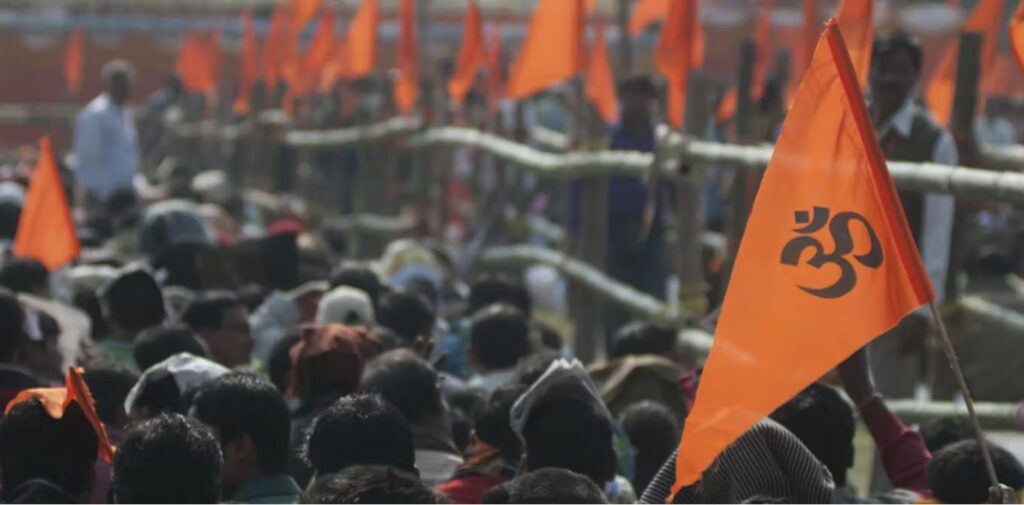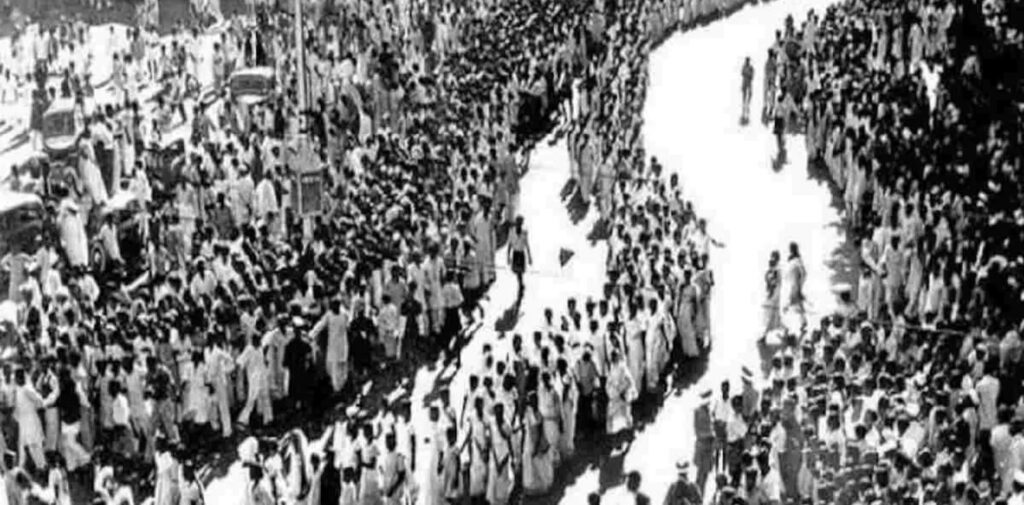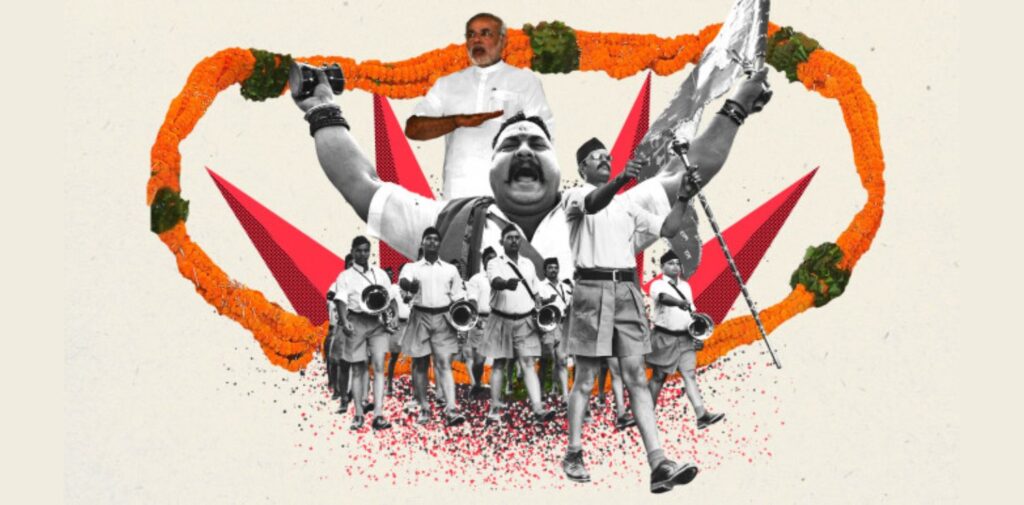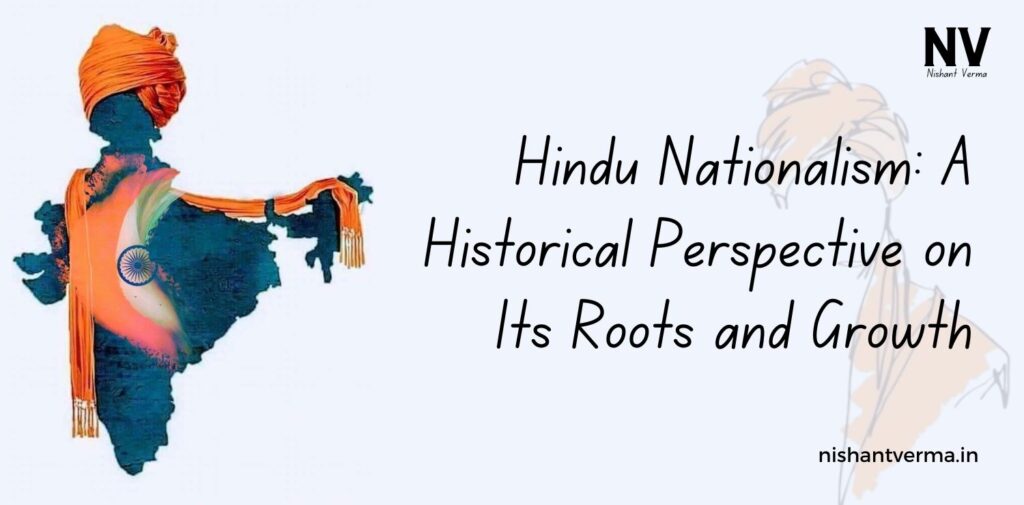Hindu nationalism, often associated with the belief that India should be a nation primarily for Hindus, is a complex and contentious idea. The roots of Hindu nationalism can be traced back to ancient India, but its modern form began to take shape in the 19th century. Over time, this ideology has played a significant role in shaping India’s political and cultural landscape. In this article, we will explore the historical development of Hindu nationalism, from its origins in ancient India to its growth during British colonial rule, and how it continues to influence contemporary politics.
Roots of Hindu Nationalism: Ancient and Medieval India
India, as a civilization, has been deeply rooted in its religious and cultural traditions, with Hinduism being the most prominent among them. Hinduism, a religion that dates back thousands of years, emphasizes the unity of all life, respect for nature, and the idea of a divine cosmic order. Over time, India’s society and culture were shaped by these Hindu beliefs.
In ancient India, the concept of Dharma (righteousness or moral law) played a central role in guiding the people. Hinduism, in its various forms, sought to uphold this divine order. While India was home to a diversity of cultures and religions, the idea of a common Hindu identity slowly began to take root, especially in the context of various regional kingdoms and empires that sought to unify large parts of the subcontinent.
During the medieval period, India experienced several invasions by Muslim rulers, including the Mughal Empire. The Muslim rulers of India, such as Babur, Akbar, and Aurangzeb, influenced the culture, politics, and religion of India. Hindu nationalism in its early forms began to emerge as a response to these invasions. Some Hindus began to see themselves as the defenders of their religion, culture, and way of life against foreign rule and foreign religious practices. This period also saw the rise of several Hindu leaders and warriors, like Shivaji Maharaj, who promoted the idea of Hindu sovereignty.
However, it wasn’t until the colonial period that Hindu nationalism started to take a more organized and political form.

The Rise of Hindu Nationalism in Colonial India
In the 19th century, India was under British colonial rule, which had a profound impact on the country’s social, political, and cultural fabric. The British government’s policies of divide and rule, alongside the growing influence of Western ideas, led to a complex situation in India. It was during this period that Hindu nationalism began to emerge as a response to colonialism and as part of the broader struggle for Indian independence.
One of the earliest forms of organized Hindu nationalism can be traced to the establishment of the Arya Samaj in 1875 by Swami Dayananda Saraswati. Dayananda was a reformist who wanted to revive and reform Hinduism by returning to its “Vedic roots.” He emphasized the need for Hindus to unite against British colonial rule and to oppose the missionary activities that were spreading Christianity in India. The Arya Samaj became a key player in promoting the idea of Hindu unity and pride, urging Hindus to reclaim their cultural heritage and resist the Western influence that had been introduced during British rule.
Another important figure in the development of Hindu nationalism during the colonial period was Vinayak Damodar Savarkar. In his book Hindutva: Who is a Hindu? Published in 1923, Savarkar outlined his vision of Hindu nationalism. Savarkar argued that India should be a nation for Hindus, and he emphasized the importance of Hindu culture, religion, and civilization.
For Savarkar, Hinduism was not just a religion but a way of life that should define the Indian nation. He also argued that Muslims and Christians in India, who followed foreign religions, could never fully be a part of the Indian nation. His ideas became a foundational part of modern Hindu nationalist thought and played a key role in shaping organizations like the Rashtriya Swayamsevak Sangh (RSS), which was founded in 1925.
The RSS became a crucial player in the development of Hindu nationalism, especially in the post-independence period. The RSS, which initially started as a cultural and social organization, later became involved in politics and was closely linked to the Bharatiya Janata Party (BJP), which today is one of India’s major political parties.
Hindu Nationalism and the Indian Independence Movement
The idea of Hindu nationalism became more prominent during the Indian independence movement. While the Indian National Congress (INC) focused on a more inclusive vision of Indian nationalism, one that sought to unite all religious communities in the fight against British rule, Hindu nationalist organizations like the RSS and the Hindu Mahasabha argued that India’s true identity lay in its Hindu traditions.
During this period, the INC faced strong opposition from Hindu nationalist groups. These groups believed that the Congress’s emphasis on secularism and its efforts to build bridges with Muslims and other religious communities were weakening the Hindu cause. The tensions between these two visions of Indian nationalism came to a head during the 1940s.
One of the key moments in the history of Hindu nationalism was the partition of India in 1947, which led to the creation of Pakistan as a separate state for Muslims. The partition was marked by widespread violence, particularly between Hindus and Muslims, and left a deep scar on India’s collective memory. For Hindu nationalists, the partition was seen as the result of the failure of Indian secularism and the Congress’s efforts to accommodate Muslim demands. Hindu nationalists argued that India should have remained a Hindu-majority nation, and they blamed the Congress for failing to protect Hindu interests.

Post-Independence Growth of Hindu Nationalism
After India gained independence in 1947, the Hindu nationalist movement continued to grow, though it faced significant challenges. The Indian Constitution, adopted in 1950, established India as a secular republic, guaranteeing equal rights for all citizens regardless of religion. This secular framework was supported by the Indian Congress Party, led by Nehru, but it was opposed by Hindu nationalist groups.
In the 1980s and 1990s, Hindu nationalism began to gain more prominence in Indian politics. The demolition of the Babri Masjid in 1992 by Hindu nationalists, who believed the mosque had been built on the site of an ancient Hindu temple, marked a turning point in the rise of Hindu nationalism. The incident led to widespread communal riots, and the issue of Hindu-Muslim relations became a focal point in Indian politics.
The Bharatiya Janata Party (BJP), which is closely associated with Hindu nationalism, came to power in 1998 under the leadership of Atal Bihari Vajpayee. The BJP’s rise marked a significant shift in Indian politics, as the party embraced the ideas of Hindu nationalism more openly. Under the leadership of Narendra Modi, the BJP’s influence has grown even further, and it has pushed for policies that critics argue favour the Hindu majority and undermine the rights of religious minorities, particularly Muslims.

Hindu Nationalism Today: Challenges and Controversies
In contemporary India, Hindu nationalism continues to be a major force in politics. Under the Modi government, there has been a significant rise in religious tensions, with many accusing the government of promoting an agenda that marginalizes India’s Muslim population. The idea of “Hindutva” — the belief in a Hindu-centric India — has become a key political ideology, and it influences everything from education policies to the treatment of religious minorities.
While Hindu nationalism has certainly helped strengthen a sense of pride and unity among Hindus, it has also been a source of division. Critics argue that it undermines the pluralistic and inclusive nature of Indian democracy, which was meant to respect the diversity of its people.
Conclusion
Hindu nationalism has a long and complex history in India. From its ancient roots in Hindu religious and cultural traditions to its rise as a political ideology in response to colonialism, the idea of Hindu nationalism has evolved over centuries. While it continues to play a prominent role in Indian politics today, its impact on the country’s diverse and pluralistic society remains a topic of debate and controversy. Whether it will continue to shape India’s future or give way to more inclusive forms of nationalism remains to be seen.




